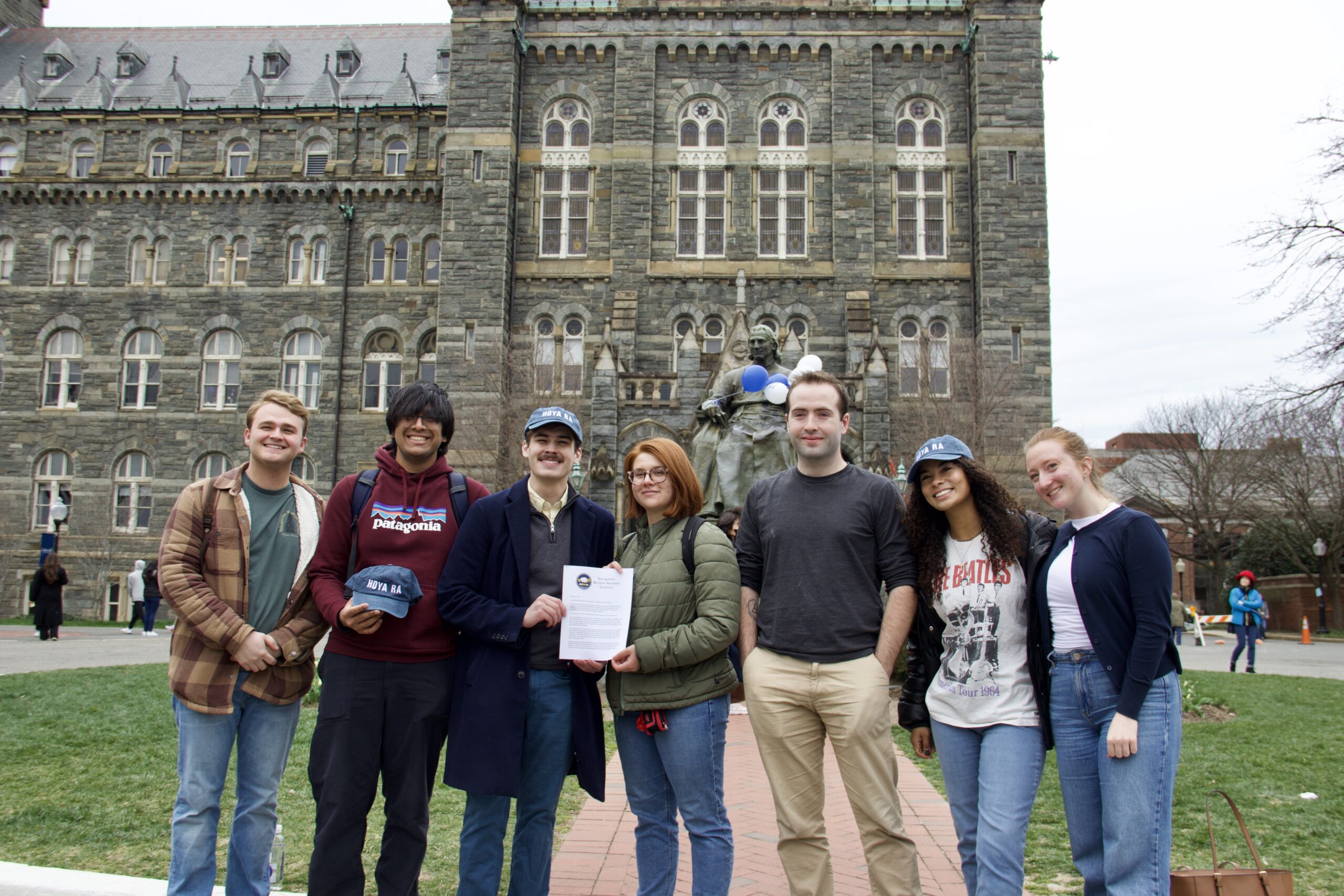The editorial board supports and affirms Georgetown Resident Assistant Coalition’s (GRAC) ongoing efforts to unionize. We recognize unionization as a way for resident assistants (RAs) to demand improved working conditions from the university. Because official university channels have failed to respond to RAs’ grievances in a timely and satisfactory manner, unionization has become necessary to ensure just and equitable treatment for all RAs.
On March 22, GRAC announced its intention to unionize with Office and Professional Employees International Union (OPEIU) Local 135 in an open letter to President DeGioia. In the letter, GRAC requested the university’s voluntary recognition as a collective bargaining unit. On March 27, the university announced that it would not voluntarily recognize GRAC, sending the question of unionization to a secret ballot election slated for April 16. If a simple majority of RAs vote in favor of unionization, GRAC will be officially recognized as a collective bargaining unit by Georgetown.
GRAC would not be the first union of its kind. A 2016 decision by the National Labor Relations Board (NLRB) ruled that undergraduate workers at private universities could be classified as employees with unionization rights. Since then, RAs across the country have turned to unionization as a way to secure meaningful protections and support from universities. OPEIU, the union representing GRAC, has helped RAs at Wesleyan, Barnard, Tufts, and most recently Emerson College win successful contracts with their universities.
GRAC’s primary demands include improved accountability for supervisors and the creation of a more equitable compensation structure. Other demands include access to mental health resources, better staffing ratios, the ability to study abroad, and compensation for currently unpaid trainings.
According to GRAC, Community Directors (CDs) —RAs’ direct supervisors—have inconsistently and unfairly enforced Residential Living policies, leading to the arbitrary and wrongful termination of a small number of RAs. Thus, GRAC is demanding the creation of a formal grievance process for RAs to report potential misconduct by CDs.
GRAC has also drawn attention to Georgetown’s inequitable compensation structure, which does not allow RAs who receive financial aid to receive the full amount they have earned. While some students receive full compensation (about $20,000) for being an RA, others receive less than $1,000 for performing the same job. GRAC is demanding the current compensation system be replaced with an equally large, direct stipend—a compensation structure that has been implemented at other universities including Johns Hopkins and Northwestern.
Georgetown must take action on GRAC’s grievances but should not concede to certain demands in an effort to delay unionization. In 2019, when a group of RAs tried to unionize, the university responded by immediately conceding to the group’s primary demand, an improved meal plan. This soft union busting caused the unionization effort to lose momentum and the group never successfully unionized.
According to RAs, Georgetown has refrained from union busting GRAC to this point. Still, Georgetown’s decision to hire Jonathan Fritts (LAW ’98) as legal representation suggests that the university may try to block or delay GRAC’s unionization effort. Fritts was also hired to represent George Washingon University in 2017, when RAs tried to unionize there, where he argued against RA’s right to unionize on behalf of GW.
As the April 16 election quickly approaches, the editorial board calls on the university to abide by its Just Employment Policy and allow the RA vote to occur without interference, intimidation, or delay. If GRAC successfully unionizes, this will provide a long-term mechanism for RAs to effectively voice their grievances to and demand change from the university.






